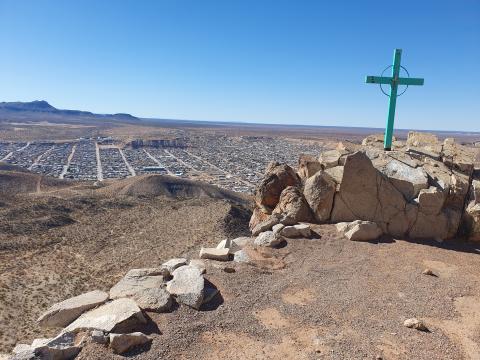
With the end of Title 42 on May 11, the political fight over the right to seek asylum at the U.S.-Mexico border is expected to heat up, with poor and vulnerable people caught in the fire.
On May 11, the Biden administration is expected to end the Title 42 pandemic policy, which has allowed immigration authorities to rapidly turn back hundreds of thousands of people without giving them a chance for asylum.
What is Title 42
First enacted under the Trump administration and continued under President Biden, the pandemic-era Title 42 health policy has allowed border authorities to expel asylum seekers immediately, denying them their legal right to seek asylum. Public health experts have spoken out against this health policy as outdated and ineffective, and human rights groups have attested to the harm the policy has caused for migrants, including through documenting nearly 10,000 cases of violence against migrants expelled under Title 42.
After more than two years of advocacy against Title 42 expulsions, we rejoiced at the news of its impending end more than one year ago. “We pray this decision is part of a larger effort to restore the asylum system to allow fair processing of migrants and asylum seekers,” said Susan Gunn, director of the Maryknoll Office for Global Concerns, in April 2022.
What’s Next
With the end of Title 42, some expect the crowds of migrants on the Mexican side of the border to move forward, possibly leading to overcrowded border patrol facilities once again. The Biden Administration is considering stringent new immigration proposals that have upset immigration advocates who say the president is back pedaling on promises made on the campaign trail, promises to build a more welcoming nation.
One policy would block migrants from asylum if they do not use new parole programs, schedule an appointment at the border through the glitchy CBP One app, or first seek protections in a country they traveled through. Another of Biden’s proposed policies would resume the detention of migrant families.
The Department of Homeland Security has also increased resources on the border and cracked down on smuggling networks.
Asylum Door Narrowing
In addition to the president’s proposed restrictive policies, there are members of Congress with their own proposals for narrowing access to asylum as a means of stemming the flow of migrants entering the United States. The latest is the Border Security and Enforcement Act of 2023 in the House of Representatives.
Eleven Catholic organizations working with asylum seekers, including the Maryknoll Office for Global Concerns, spoke out against the new border security bill, in a letter to the House Judiciary Committee on April 18, 2023. They named four ways the bill will harm immigrant communities and violate Catholic principles of welcome.
First, the bill would make it nearly impossible for migrants to seek asylum in the U.S. and significantly easier to deport asylum seekers, including families and children into harm’s way.
Second, the bill will restart the failed and dangerous Remain in Mexico program for all migrants, including unaccompanied children;
Third, the bill will require family detention for any families attempting to enter the U.S. to seek asylum, as well as any families who previously entered the U.S. without visas;
Fourth, the bill will subject all unaccompanied children to an expedited removal process, harming children, particularly those in danger of trafficking.
These are short-term, draconian fixes with many traumatic, unintended consequences.
“The solutions is not found at the border but rather in Washington, DC,” Gunn said, “where Congress has failed to enact meaningful immigration reform for more than 30 years.”
“The United States desperately needs comprehensive immigration reform which includes opening up different legal pathways for migrants, rather than restricting asylum access at the border. Our missioners on the border see it, and the president and members of Congress know it. They don’t want to hear it but as long as the cries of the migrants go on, we will continue calling for justice for migrants.”
Faith in action
See the conversation between leaders on immigration, “Human Dignity and the Migration Crisis at the U.S. Southern Border” hosted by the Georgetown Initiative on Catholic Social Thought https://mogc.info/Migration-Discussion
Photo of U.S./Mexico Border at El Paso, Texas by Thomas Gould
